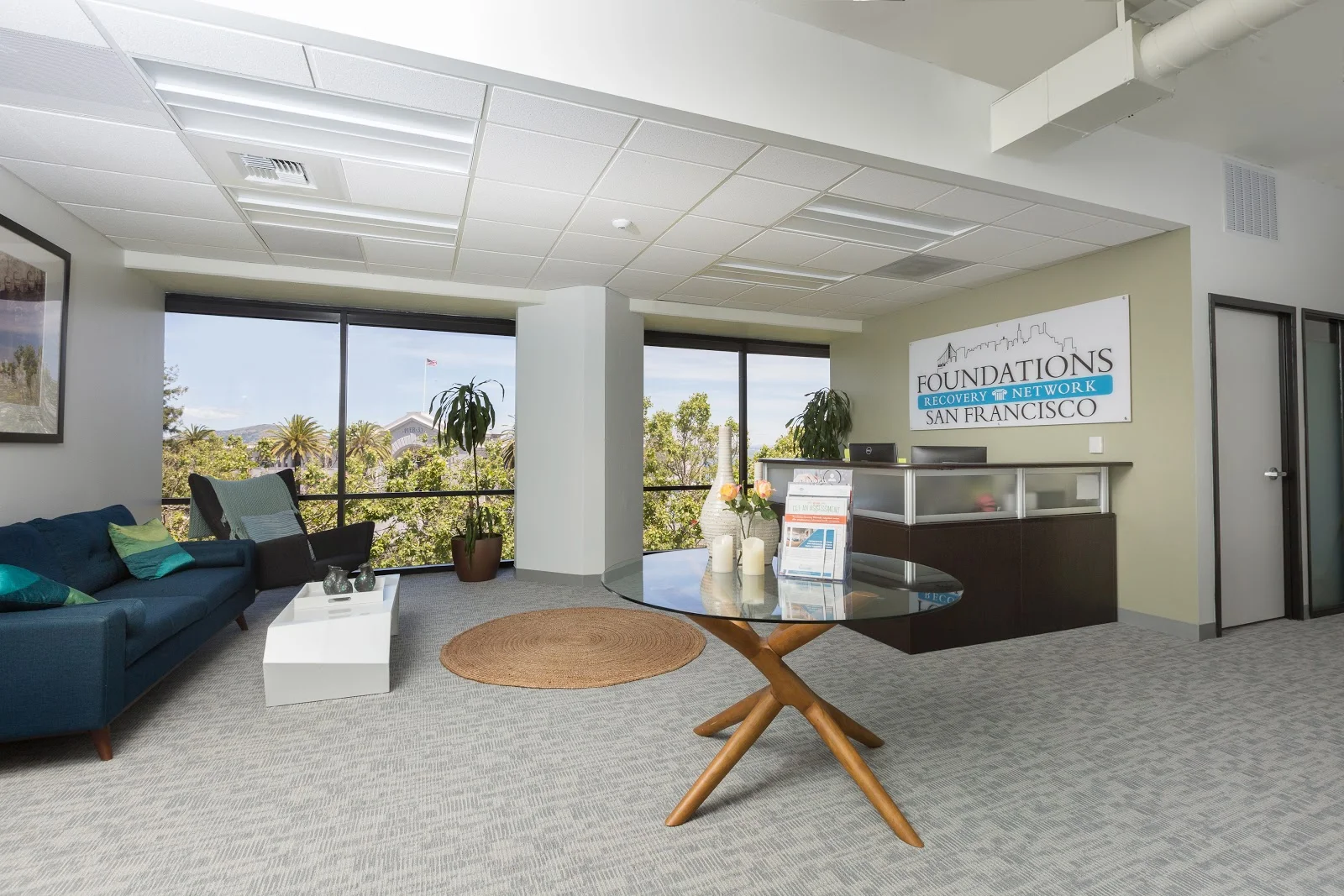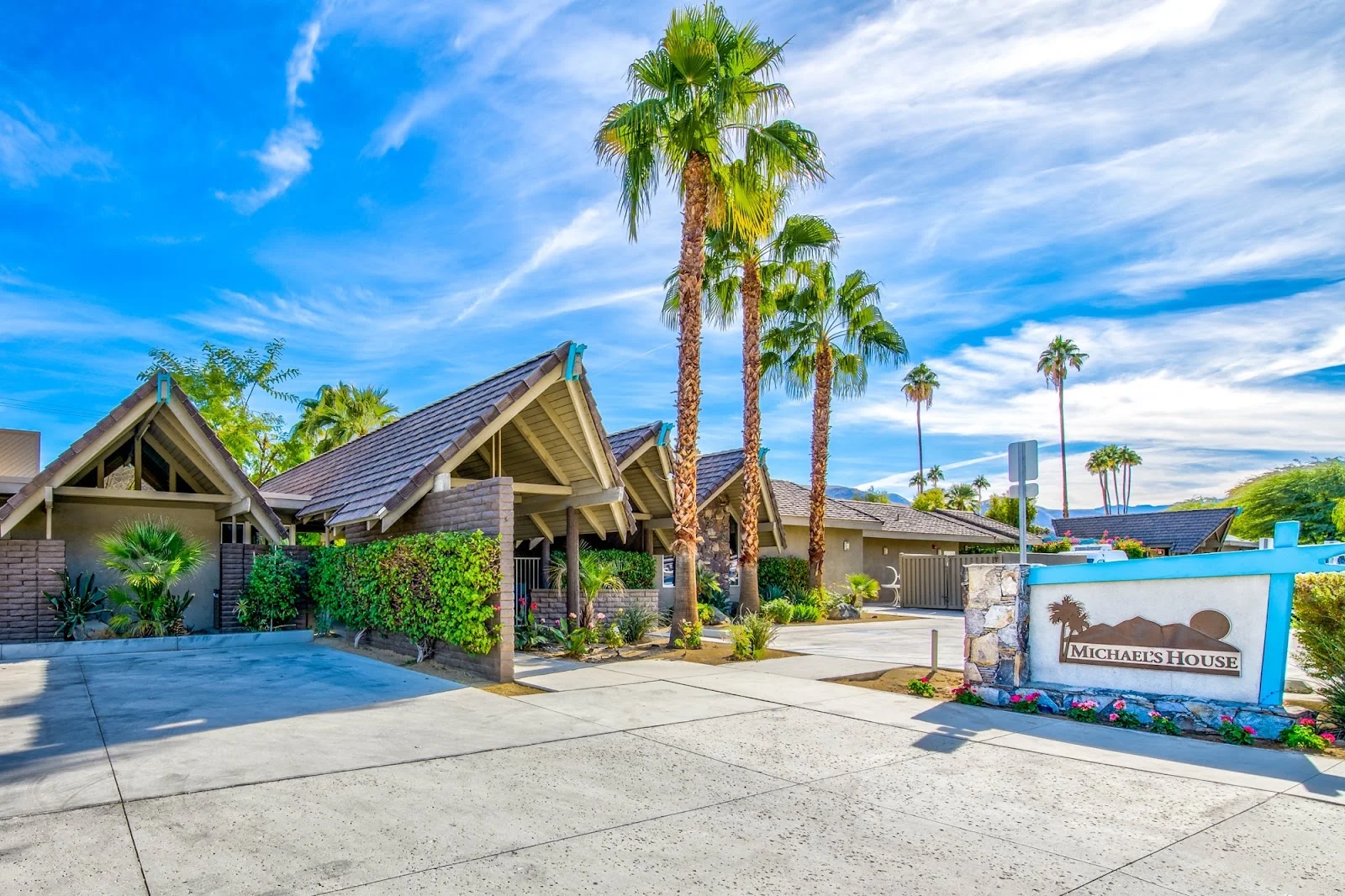Michael’s House Treatment Center, located in Palm Springs, California, provides comprehensive, evidence-based treatment for adult men and women struggling with drug and alcohol abuse. The center is dedicated to offering personalized care that meets the unique needs of each patient, with a focus on long-term recovery. They accept various insurance plans and offer self-pay options, ensuring that treatment is accessible to those who need it. In addition, they provide specialized outpatient addiction treatment for veterans.
At Michael’s House, patients have access to a full continuum of care, including detoxification services, where medication-assisted treatment (MAT) is an option. The center also offers outpatient, residential, and partial hospitalization programs, with dedicated rehabilitation tracks for men, women, and LGBTQIA+ individuals. Recognizing the complexities of co-occurring disorders, they provide dual diagnosis treatment to address both substance use and mental health conditions simultaneously.
The therapeutic approach at Michael’s House is diverse and robust, incorporating various formats to support recovery. Cognitive Behavioral Therapy (CBT) and Dialectical Behavior Therapy (DBT) are central to their treatment programs, and patients can engage in both individual and group therapy sessions. The center also enhances recovery through holistic practices like yoga and nutritional therapy, along with targeted relapse prevention therapy.
The positive feedback from former patients speaks to the quality of care at Michael’s House. Patients consistently praise the friendly and supportive staff, noting that the center provides them with the essential tools and a strong foundation for successful recovery. One former patient described Michael’s House as one of the best treatment centers available.
Michael’s House is committed to treating the whole person through an integrated, multidisciplinary team approach. The treatment team includes primary therapists, consulting physicians, residential therapists, nurses, group leaders, and more, all working together to provide comprehensive care. Their specialized training in the Foundations Recovery Network treatment model ensures that each patient’s complex needs are met.
Understanding the close connection between mental disorders and addiction, Michael’s House is equipped to address the challenges faced by individuals with co-occurring disorders. The National Institute on Drug Abuse (NIDA) notes that those diagnosed with mood or anxiety disorders are twice as likely to struggle with addiction. Michael’s House bridges the gap in modern medical care by uniting treatment for mental health and addiction, offering patients a real path to relief and recovery.
Michael’s House is proud to hold accreditations from CARF and the Joint Commission, ensuring the highest standards of care. They are also LegitScript verified as of April 2020 and are listed with SAMHSA, further solidifying their commitment to excellence in addiction treatment.
Michael's House - Men's Center Information
Treatment
Who We Treat
- Adults
- Seniors/Older Adults
- Midlife Adults
- Older Adults
- Male and Female
- LGBTQ+
- Pregnant/Postpartum Women
- Executives
- Veterans
- Mild Disabilities
- Pregnant Women
Treatment Focus
- Alcohol
- Co-Occurring Disorders
- Drug Addiction
- LGBTQ+
- Veterans
Approaches
- 12-Step-Based
- Individual Treatment
- Evidence-Based
- Twelve Step
- Experiential
- Cognitive Behavioral Therapy (CBT)
- Rational Emotive Behavior Therapy (REBT)
- 1-on-1 Counseling
- Adventure Therapy
- Equine Therapy
- Meditation & Mindfulness
Conditions We Treat
- Codependency
- Co-Occurring Disorders
Substances We Treat
- Alcohol
- Benzodiazepines
- Chronic Relapse
- Heroin
- Cocaine
- Methamphetamine
- Marijuana/Cannabis
Languages
- English
Aftercare
- Relapse Prevention Planning
- Intensive Outpatient Program
- Drug Screening
- Aftercare App
- Outpatient Treatment
- Private
- Medication Assistance
- Return Visits
- Alumni Events & Get-Togethers
- Alumni Reunions
- Online Alumni Groups
Level of Care
- Outpatient
- Intensive Outpatient Program (IOP)
- Day Treatment
- Outpatient Detox
- Detox
- Residential Rehab
- Co-Occurring Mental Health
Experience
On-Site Amenities
- Pool
- Access to Nature
- Airport Transfers
- Business Center
- Fitness Center
- Gourmet Dining
- Hot Tub
- Internet Access
- Chef-prepared Meals
Personal Amenities
- Air-Conditioned Rooms
- Bathroom Essentials
- Desk
- En Suite Bathroom
- Housekeeping
- Jacuzzi
- Private or Shared Rooms
- Shared Bathroom
Off-Site Amenities
- Access to Nature
On-Site Activities
- Museums
- Yoga
- AA/NA Meetings
- Adventure Outings
- Games
- Hiking
- Volleyball
- Movies
- Physical Fitness
Special Considerations
- Wheelchair Accessible
- Gender-specific groups
- LGBTQ group
- Dietary Accommodations
- Gluten-Free
- Other Dietary Needs
- vegetarian
- Halal
- Kosher
Accreditations
-
State department of health
State Licenses, issued by government agencies, authorize rehabilitation organizations to legally operate within designated geographical areas. The specific licenses required for operation are typically determined by both the nature of the rehabilitation program provided by the facility and its physical location.

-
Commission on Accreditation of Rehabilitation Facilities (CARF)
CARF accreditation is a globally recognized certification for rehabilitation and human service organizations. It signifies that an organization meets high-quality standards and is committed to providing top-level care. Achieving CARF accreditation involves a rigorous evaluation process, including on-site surveys. This accreditation enhances an organization's reputation, instills trust in clients and funders, and encourages ongoing excellence in the field.

-
NAATP
The National Association of Addiction Treatment Providers (NAATP) accreditation is a recognized standard within the field of addiction and behavioral health. This accreditation signifies that a treatment provider has undergone a rigorous evaluation process to ensure the quality and effectiveness of its programs and services. NAATP accreditation serves as a valuable marker of a provider's commitment to adhering to established industry standards, offering evidence-based treatments, and prioritizing the well-being of individuals seeking addiction and behavioral health support.

-
The Joint Commission
The Joint Commission accreditation for addiction and behavioral health is a prestigious recognition signifying a facility's commitment to delivering high-quality care and safety for individuals dealing with substance abuse and mental health issues. It involves rigorous evaluations and assessments, ensuring patients receive evidence-based treatment and exceptional care. This accreditation demonstrates a facility's dedication to continuous improvement and ethical practices, building trust among patients and healthcare professionals seeking top-tier addiction and behavioral health services.

-
LegitScript
Only programs and services that have successfully completed a rigorous application process initiated in 2018 can attain LegitScript certification. This stringent evaluation guarantees that only reputable mental health and co-occurring substance abuse treatment providers are eligible to be part of Google's network, ensuring compliance with HIPAA privacy laws.

-
SAMHSA certification for opioid treatment program (OTP)
Accreditation by the Substance Abuse and Mental Health Services Administration (SAMHSA) for Opioid Treatment Programs (OTPs) signifies that a program has met strict standards for providing high-quality care to individuals with opioid use disorders. It assures patients, families, and communities that the OTP follows evidence-based practices, employs qualified staff and maintains a safe and effective treatment environment. This accreditation reflects the program's commitment to addressing the opioid epidemic and promoting recovery.
Additional Locations
Michael's House - Men's Center Accepts The Following Insurance Plans
Find the best treatment options. Call our free and confidential helpline today!


















